Methods for Calculating Cost of Engineering Consultant Services
There are several methods by which calculation of engineering consultant services cost can be carried out in construction. It is possible to employ various charging approach at different phase of the consultant services.
The application of each method or combination of methods is dependent on nature, scope and complexity of the required engineering services. In this article, these charging consulting services are discussed.
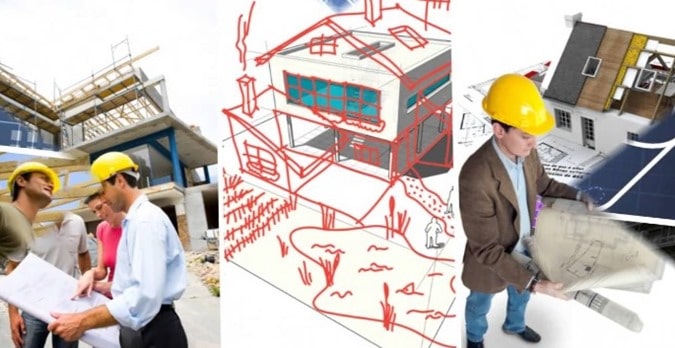
Following are the topics discussed for calculating cost of engineering services or consulting services in construction:
- What are the factors that affect the engineering service cost?
- Methods for charging engineering services
What are the Factors that affect the Engineering Service Cost in Construction?
There are various factors that control the cost of engineering services required for a specific project. These factors are outlined below:
- The conditions at project site.
- Degree of danger that may be encountered and exposure possibility.
- System of project delivery namely: design-bid-build, design-build, design-build-operate-maintain.
- Type of developer or contractor or client owner.
- The owner skill and experience in similar projects and the process of decision making.
- Submittal and review numbers required by the owner and regulatory commissions.
- The number of meetings held for communities based on the owner requirements.
- Types of schedule namely: conventional, delayed or accelerated.
- Project complexity and number of involved specialties and subcontractors.
- Finally, other contract restrictions.
Methods for Charging Engineering Consultant Services
There are five different methods which are used for charging engineering consultant services:
- Salary cost times multiplier, plus direct non-salary expense (multiplier)
- Hourly billing rate plus reimbursable expenses and a “not to exceed” amount for specified services (hourly)
- Per diem (fixed charge per day)
- Cost plus fixed fee
- Lump sum or fixed price
Salary Cost Times Multiplier Plus Direct Non-Salary Expense (multiplier)
It is dependent on the cost of consultants who carry out the service and it is specifically suitable tasks in which the extent or range of the engineering services is not clearly outlined.
Disregard of the charging method utilized, it is more convenient to outline the project scope adequately because it will lead to achieve satisfactory result and the end of the service and reduced possible disputes between the owner and engineering consultants.
There are specific project conditions for which multiplier method for charging consultant services is suitable. For example, if the scope of project is not outlined properly, the extend of the project is defined adequately, or substantially complex project.
Hourly Billing Rate Plus Reimbursable Expenses and a “Not to Exceed” Amount for Specified Services (Hourly)
Similar to the multiplier approach, hourly billing rate plus reimbursable is based on the consultant cost that performs the service. It can be used for cases where the extent of the project is not certain.
Moreover, the consultant and the owner should agree on specifying the expected range of the project and the methods for adjusting not to exceed amount. In the case the cost closes to not to exceed amount, then the owner should be informed and provide modified cost estimate for the completion of project.
This approach may be specified and employed in the case where the project range is not defined properly, simplified accounting, considerably short project assignment, the extent of the project is defined adequately and on-site construction management services
Per Diem (Fixed Charge Per Day)
The per diem term is referred to an eight hour per day. The cost of consultants who conduct the engineering service is the base for the per diem approach as it is the case in the previous two methods.
It is convenient to choose for charging engineering consultation services if the project scope is not outlined properly and in the case where it is outlined adequately, very short assignment and on-site construction management services.
Cost Plus Fixed Fee
Similar to the per diem, hourly and multiplier method, cost plus fixed fee is dependent on the cost of consultants.
It can be used whether the extent of the project is outlined properly or not, very complex project and suitable for on-site construction management services.
Lump Sum or Fixed Price
Unlike other four methods discussed above, lump sum or fixed price approach is based on completion of the project and the extent or range of the project need to be defined adequately. So, the scope of the project should be accepted and agreed upon by both consultants and project owner.
This method is recommended to be employed if the scope of the project is defined adequately, simplified accounting, crucially complex jobs and very short tasks. However, it should be ruled out if the extent and the range of the project is not described and outlined sufficiently.
Finally, it is discussed that the selection of aforementioned methods for charging engineering consultant services is based on the certain project conditions. Those conditions and suitability of each method are summarized in the following table.
Table-1: factor that control the selection of consultant service charging method
| Condition of the project | Multiplier | Hourly | Per diem | Cost plus fixed fee | Lump sum |
| The scope is not outlined properly | A1 | A | A | A | NA2 |
| The extend of the project is defined adequately | A | A | A | A | A |
| Simplified accounting | NA | A | A | NA | A |
| Considerably short task | NA | A | A | NA | A |
| Substantially complex task | A | NA | NA | A | A |
| On site construction management services | NA | A | A | A | NA |
1The method of charging engineering services is applicable for that specific condition
2The method of charging engineering services is not applicable for that specific condition
What Services are Provided by Engineering Consultants in Construction?
Engineering consultants may provide inclusive engineering services but there are consultants which are specialized in specific engineering areas for instance structural, geotechnical, and environmental.
Generally, the necessity for engineering services is based on the nature of the project and capability of the owner.
Engineering services provided by consultant add value to the project and improve its quality. Added to that, it is considerably significant that the owner clearly understands type of services that may be provided to be able to develop scope of services that serve the project properly.
So, scope of engineering services should be communicated between the owner and consultant to have a successful project. That is why various engineering services that may be provided by consultants is discussed in detail in the following sections.

Services Provided by Engineering Consultants in Construction
Engineering services provided by consultants may be categorized into three classes:
- Consultation, investigations and studies
- Design and construction
- Special services
Consultation, Investigations and Studies Services in Construction
In this consultation category, consultants commonly involve in collection, interpretation and reporting information in addition to provide conclusions and recommendations.
The main types of consultations that may be offered and fallen into this category are discussed in the following sections:
Preliminary and Feasibility Investigation and Reports
These services may include comprehensive investigation, analysis of conditions, and comparison between different solution options for the project. In addition to provide conclusions and recommendation regarding the possibility of executing the project.
Several factors such as environmental impact, risk management, sustainable development, life cycle costs, operating and capital costs, and financial considerations should be used as a base for conclusion and recommendation provision.
Planning Studies
It includes the preparation of land development plans, urban plans, regional plans, generating facility master plans, carry out corridor studies, exploring environmental condition, and conducting environmental studies.
These various planning and reports need cooperation between different engineering specialist to provide satisfactory consultations.
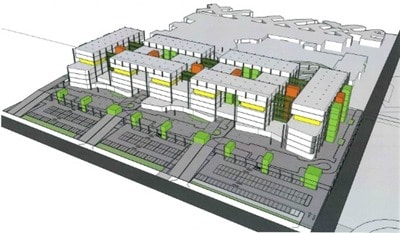
Public Involvement
The owner of the project need consultation to present project concept and its details to the public and representing the owner before government departments.

Appraisal, Valuations and Rate Studies
These services include studying and analyzing current situations, evaluation of capital and operating costs, overhead expenses, anticipating incomes for property development of toll facilities, and studies to recommend application rate in the future.
Assistance in Financial Matters
Consultants are required to help the owner while revenue bonds are issued to finance infrastructures. Involving engineering consultant in the bond practicality analysis, estimating cost of construction, evaluating annual income requirements, and may be other services.
Materials Engineering and Equipment Tests
Consultations provided regarding materials engineering and equipment tests involves testing of materials and equipment according to applicable codes, specialized examination equipment and materials employed in the construction and other inspection and observations demanded by the project owner.

Inspection and Evaluation of Existing Facilities and Structures
These services involve the evaluation of structure interaction with its surroundings, for example, bridge abutment and the likelihood of scouring in streambed. In addition to testing materials for projects like bridges, roadways, wastewater treatment structures, and other facilities.
Professional services
Examples of professional services are assistance in preparing for legal proceedings, appearances before boards, and investigation of technical issues need specialized engineering experience, knowledge, and judgment.
Services in Design and Construction by Engineering Consultants
Generally, the design and construction of buildings are divided into six stages including study and reports, preliminary design, final design, bidding, construction, and operation. The entire design and construction phases need engineering services which are explained below:
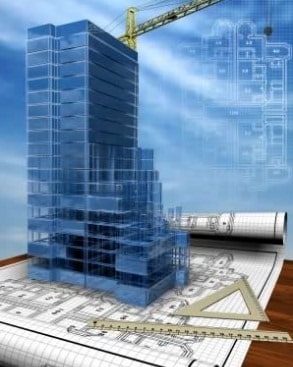
Study and Report
The main task to be completed in study and report phase include the establishment of scope and cost of project and evaluation of viable alternatives in detail.
Professional engineering services which might be required in this phase involve discussing and explaining the purpose, need and financial requirements of the project, review available data, recommend and help the owner to achieve supplementary data.
Moreover, to analyze government regulations and make sure the design is meeting conditions of government agencies. Added to that, compare and examine different project sites and proposed solution and offer economic investigation of those proposed solutions that meet the requirements of the owner.
At the end of this stage, a report about findings of consultants, different viable solutions, and consultant recommendation should be prepared and presented.
Preliminary Design
In this phase, the general size, scope and location of the project is established. The work of consultant is revising preliminary report and available data, discussing general scheduling, decide with the owner regarding the need for supplementary information demanded in the previous phase.
Additionally, prepare documents of preliminary design such as final design requirements, initial drawing and the whole project report, present the project to the owner and other commissions like government authority and develop initial idea of the project cost.
Final Design
In this stage, preliminary design is improved and completed to an extent that construction can be assessed and executed adequately.
The main duties of engineering consultants include preparing contract plan drawings and specifications, present an idea of project construction cost, review construction practicality to specify possible problems during construction.
Moreover, to provide assistance in applying for regulatory permits from authority whether its local or state. Lastly, to prepare essential documents regarding construction contracts for review and acceptance by owner and legal consul.
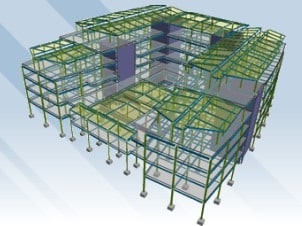
Bidding or Negotiation
Engineering service in this phase would be helping the owner in bidding achievement, receiving and processing deposits for bidding documents, explaining, expanding, and changing bidding documents as necessary, helping the owner to specify qualifications and acceptability potential contractor, subcontractor and material testing and equipment providers.
Finally, propose alternative materials and testing equipment suggested by perspective contractors if it is allowed by the contract document, and finally assist the owner in evaluating proposals.

Project Construction Phase
Consultant job in this phase is to act as a representative of the project owner, and Carry out baseline survey before construction, revise erection and falsework drawings submitted by contractor for agreement with the drawings and specifications, review laboratory and test reports on materials and equipment.
Moreover, visit construction regularly as agreed to monitor both executed work progression and quality, provide construction administration services to make sure that the construction is conducted in accordance with drawings and specifications.
Furthermore, explain and clarify contract documents, provide advises regarding work acceptability, create contract variation orders, conduct specific inspection and testing, offer instruction to tackle field issues, specify progress payment based on the completed work.
Lastly, monitor performance tests and initial operation of the project, carry out final inspection and generate a report on the completion of the project and lastly provide recommendation regarding the acceptance of the final product.
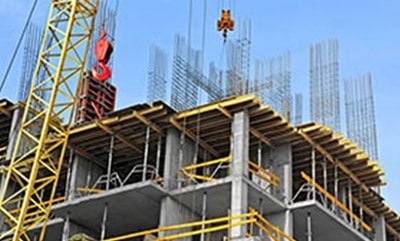
Operation Phase of Completed Project
Consultants may be assigned to develop a manual for operation and maintenance requirement of the structure, determine structure deficiencies and offer recommendation to solve the problem. Perform inspection before the warranty period of the structure is expired and finally train the staff of the owner.
Special Services Provided by Engineering Consultants
Special engineering services are needed in almost all phases of project design and construction. Studies, reports, and tasks beyond the essential engineering services which are discussed in the above sections.
Special engineering services include special structural examination of building construction or existing structure, special tests, investigation and established of design requirements, geotechnical engineering services involving sampling and boring tests, analysis and recommendation, engineering and topographic surveying required for design and construction and revising the work of other consultants to specify whether the proposed solution is viable or not.
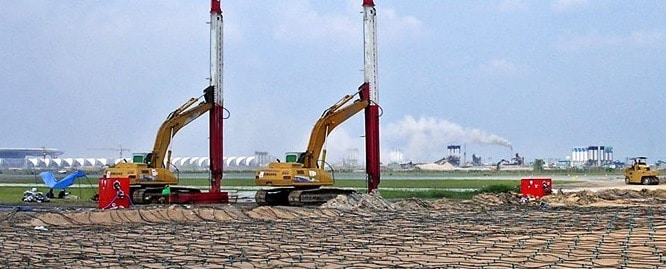
Added to that, perform redesign for the project when needed and conduct extra investigation to realize specific conditions which may arise during construction process.
Source :- theconstructor.org
No comments:
Post a Comment